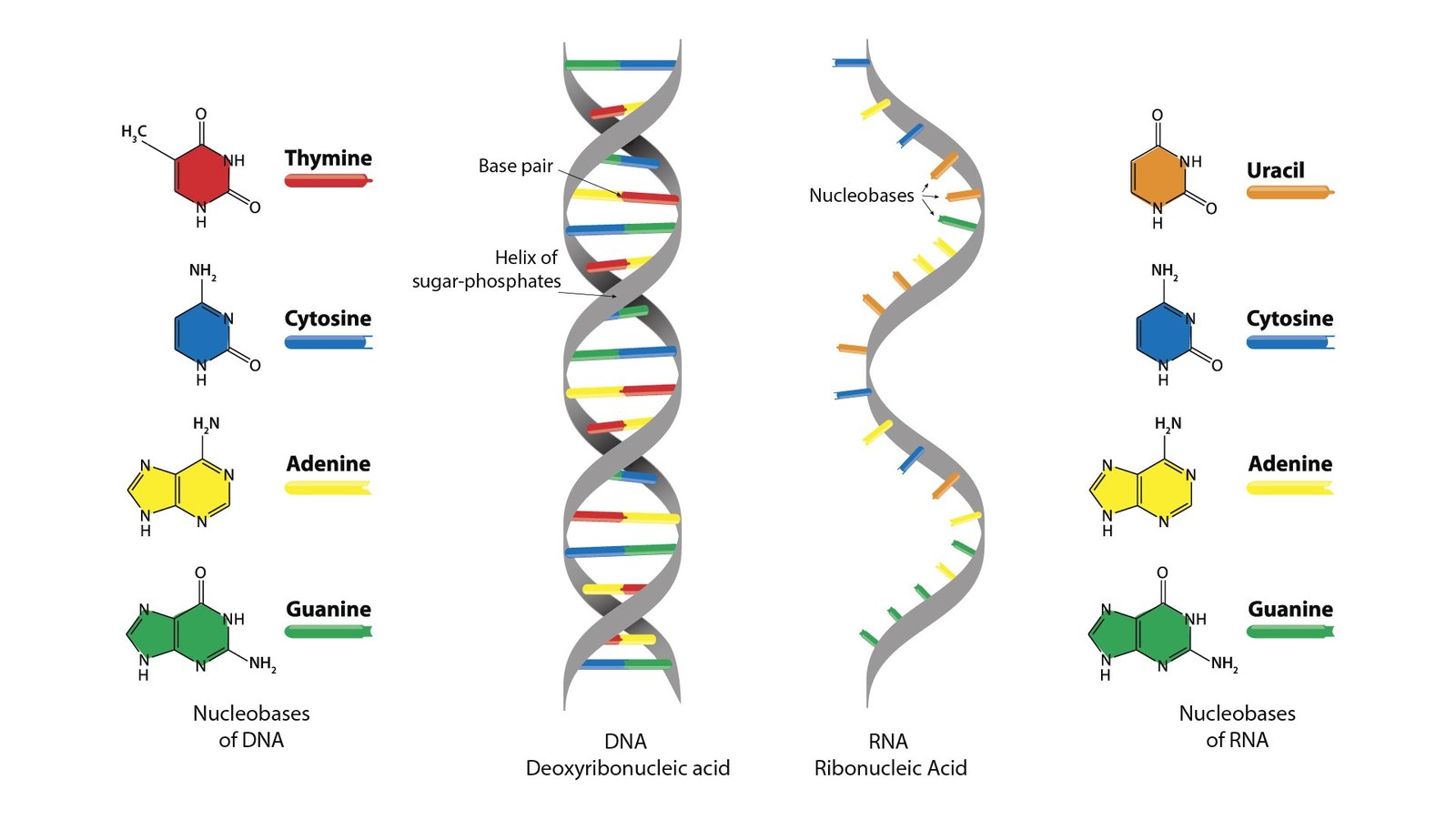In the world of biology, one term that has gained significant prominence over the past few decades is “genomics.” Genomics is the study of an organism’s complete set of DNA, including all of its genes. It plays a pivotal role in unraveling the intricate details of life’s blueprint, providing insights into genetics, evolution, and a multitude of scientific and medical applications.
Explore the Contents
- 1 The Basics of Genomics
- 2 Decoding DNA: The Human Genome Project
- 3 From Genes to Traits: Unraveling Genetics
- 4 Genomics and Evolutionary Insights
- 5 Applications in Medicine and Beyond
- 6 Ethical Considerations and the Future
- 7 Understanding Ethical Considerations
- 8 Ethics in Technological Advancements
- 9 Environmental Ethics
- 10 Ethics in Healthcare
- 11 The Role of Education
- 12 Ethics in AI and Automation
- 13 Ethics in Business
- 14 The Moral Dimensions of Scientific Advancement
- 15 Ethics and Social Justice
- 16 Forging a Ethical Path Forward
- 17 Conclusion
The Basics of Genomics
Genomics, at its core, involves the analysis and comparison of genomes – the complete genetic material present in an organism. A genome comprises genes, which are the instructions that guide an organism’s growth, development, functioning, and reproduction. Each living being, from the tiniest microbe to complex humans, has a unique genome that defines its characteristics.
Decoding DNA: The Human Genome Project
One of the most remarkable feats in genomics was the completion of the Human Genome Project. Launched in 1990 and completed in 2003, this international research initiative aimed to map the entire human genome. The project’s success marked a turning point, enabling scientists to delve into the intricacies of human genetics and paving the way for groundbreaking advancements in personalized medicine.
From Genes to Traits: Unraveling Genetics
Genes are the blueprints that shape an organism’s traits. These traits can range from physical attributes like eye color to complex predispositions for diseases. Through genomics, scientists can identify and study the specific genes associated with certain traits or conditions. This knowledge has profound implications, offering insights into hereditary diseases and the potential for gene therapies.
Genomics and Evolutionary Insights

Studying genomes across different species provides valuable insights into evolution. By comparing genetic sequences, researchers can determine how closely related organisms are and how they have diverged over time. Genomic data has revealed common ancestors, traced migration patterns, and highlighted the mechanisms driving adaptation and speciation.
Applications in Medicine and Beyond
The impact of genomics on medicine cannot be overstated. It has revolutionized diagnostics, enabling the identification of genetic markers for various diseases. This information allows for early detection, personalized treatment plans, and the development of targeted therapies. Additionally, genomics plays a pivotal role in pharmacogenomics, tailoring drug treatments to an individual’s genetic makeup.
Ethical Considerations and the Future
In an ever-evolving world, where technological advancements and societal changes occur at a rapid pace, ethical considerations have become more crucial than ever before. The intersection of ethics and the future holds immense significance as it shapes the path we tread on as a society, influencing our choices, innovations, and overall progress. This article delves into the profound importance of ethical considerations in shaping the future and the ways in which they impact various aspects of our lives.
Understanding Ethical Considerations
Ethical considerations are the moral principles that guide individuals, organizations, and governments in making decisions that are morally sound and socially responsible. In a world that is becoming increasingly interconnected, the consequences of our choices ripple across borders and generations. Therefore, embracing ethical considerations is not just an option but a necessity for ensuring a sustainable and harmonious future.
Ethics in Technological Advancements
The rapid pace of technological advancements has brought unprecedented conveniences and capabilities to our fingertips. However, it has also raised ethical dilemmas that demand careful consideration. Issues such as data privacy, artificial intelligence, and automation have prompted discussions about the responsible development and deployment of technology. Striking a balance between innovation and ethical safeguards is paramount to prevent unintended negative consequences.
Environmental Ethics

As concerns about climate change and environmental degradation intensify, ethical considerations play a pivotal role in shaping our approach to these challenges. Balancing economic growth with ecological preservation requires ethical decision-making that takes into account the long-term consequences of our actions. Sustainable practices, conservation efforts, and renewable energy initiatives are all outcomes of ethical considerations aimed at securing a better future for our planet.
Ethics in Healthcare
The realm of healthcare is not exempt from the influence of ethical considerations. With breakthroughs in medical research and biotechnology, questions about genetic engineering, organ transplantation, and healthcare accessibility have arisen. Ethical frameworks guide medical professionals and policymakers in making decisions that prioritize patient well-being, equitable access to healthcare, and respect for individual autonomy.
The Role of Education
Education plays a vital role in shaping the ethical landscape of future generations. Instilling ethical values in educational curricula fosters critical thinking and empathy among students. It equips them with the tools to navigate complex moral dilemmas and make informed decisions. By nurturing ethical awareness from a young age, we contribute to the creation of a more ethical and responsible society.
Ethics in AI and Automation
The rise of artificial intelligence and automation presents both opportunities and challenges that warrant ethical considerations. As machines become capable of autonomous decision-making, questions arise about accountability, bias, and job displacement. Ethical AI development involves transparency in algorithms, addressing biases, and defining the extent of AI’s decision-making authority.
Ethics in Business

In the business world, ethical considerations are no longer peripheral but central to success. Consumers and investors increasingly favor ethically responsible companies that prioritize environmental sustainability, fair labor practices, and corporate social responsibility. Ethical business practices not only enhance a company’s reputation but also contribute to a more equitable and just global economic landscape.
The Moral Dimensions of Scientific Advancement
Scientific progress has the potential to shape the future in profound ways. Ethical considerations guide researchers in areas such as genetic research, space exploration, and nuclear technology. Striking a balance between scientific curiosity and potential ethical pitfalls is essential for ensuring that our pursuit of knowledge does not come at the expense of ethical principles.
Ethics and Social Justice
Ethical considerations are intricately linked to the pursuit of social justice. Addressing issues such as inequality, discrimination, and human rights violations requires ethical leadership and collective action. By examining the ethical dimensions of societal structures, we can work towards dismantling systems that perpetuate injustice and create a more inclusive future.
Read More: Generalized Anxiety Disorder Treatment in 2023
Forging a Ethical Path Forward
In conclusion, the synergy between ethical considerations and the future is undeniable. The choices we make today reverberate into tomorrow, shaping the world that future generations will inherit. Embracing ethical considerations in various domains, from technology to healthcare to business, is not just a moral obligation but a strategic imperative. By fostering ethical awareness, promoting responsible decision-making, and prioritizing the well-being of both humanity and the planet, we can pave the way for a future that is not only technologically advanced but also ethically sound. As we stand at the crossroads of progress, let us remember that the path we choose today will determine the legacy we leave for the generations yet to come.
As genomics continues to advance, ethical considerations come to the forefront. Issues related to privacy, data security, and genetic discrimination need careful attention. Striking a balance between scientific progress and ethical responsibilities is crucial. The future of genomics holds exciting possibilities, from furthering our understanding of the microbial world to potentially editing genes to eliminate hereditary diseases.
Conclusion
Genomics is not just a scientific field; it’s a journey of discovery that unveils the mysteries encoded within the DNA of all living beings. From understanding our evolutionary history to providing cutting-edge medical solutions, genomics empowers us with knowledge that has the potential to transform lives. As technology and research continue to propel genomics forward, we can anticipate a future where our mastery over the blueprint of life reaches even greater heights.
Read More: Cybersecurity in the Age of Digital Transformation

